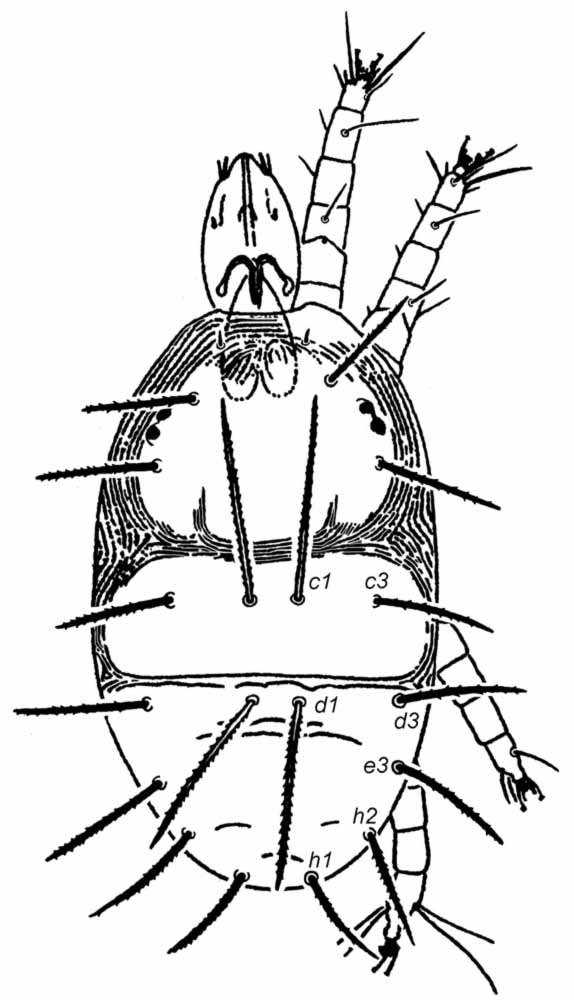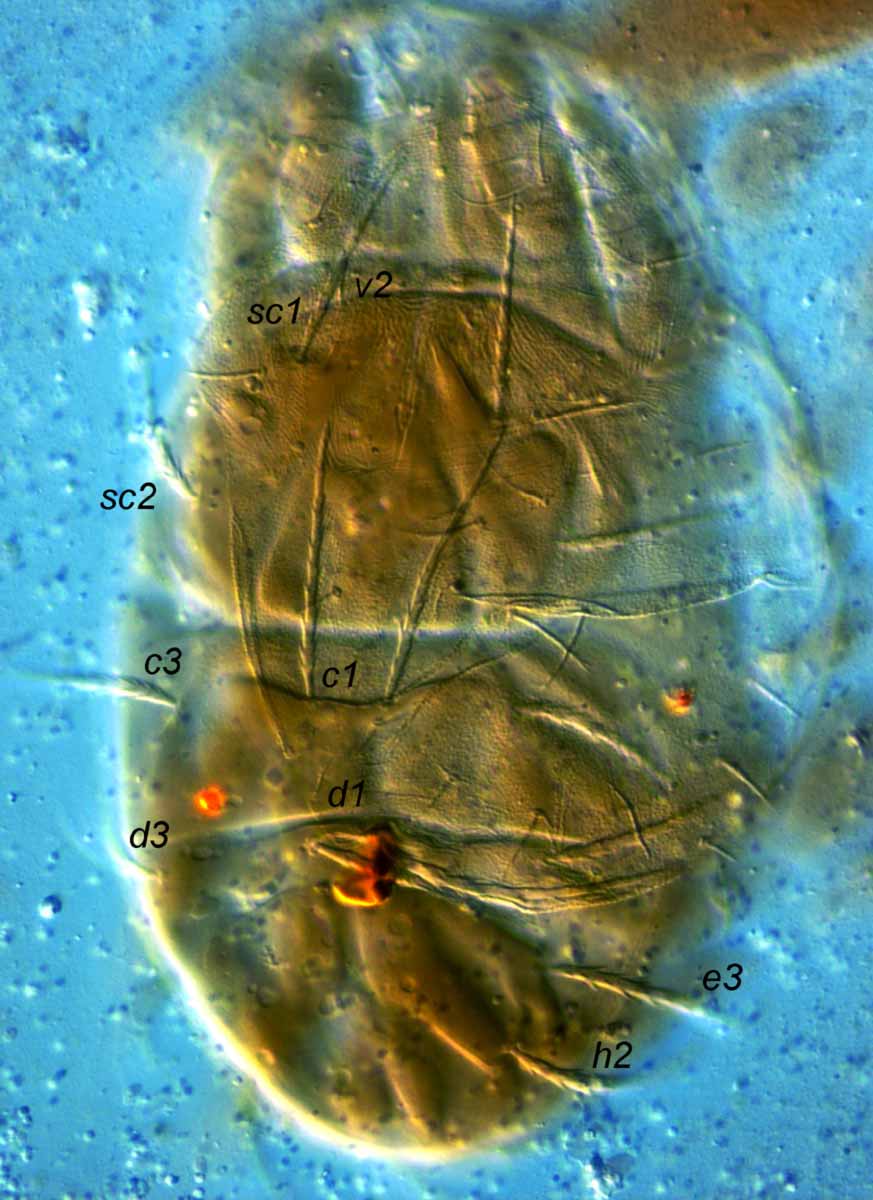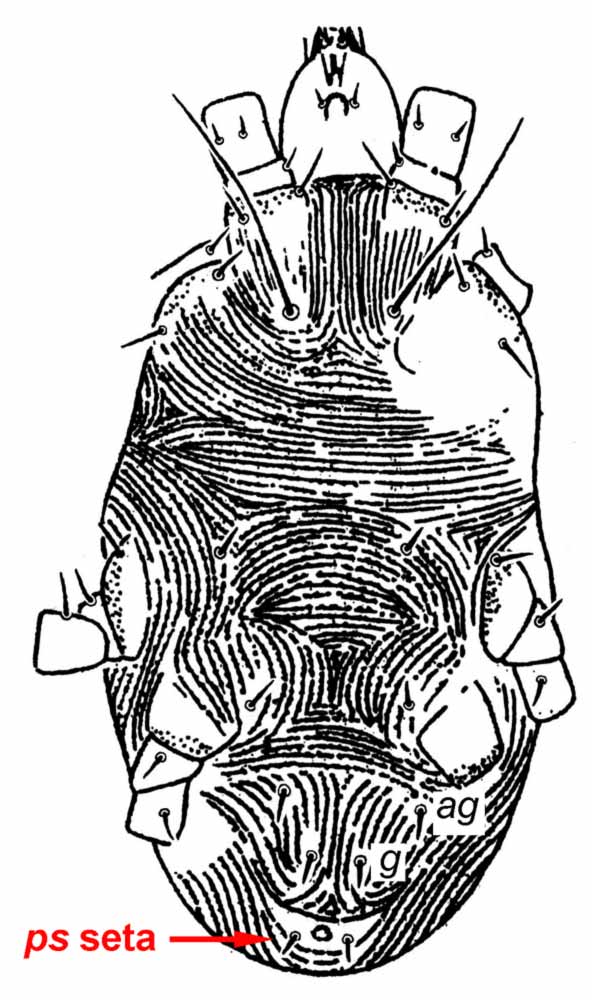Obduloides
|
Fig. 1. Obduloides rajamohani female dorsum (after Baker & Tuttle 1975). |
|
Fig. 2. Obduloides rajamohani female dorsum (moulting - the deutonymphal skin can be seen on the right side). |
|
Fig. 3. Obduloides rajamohani female venter, indicating one pair ps setae (after Baker & Tuttle 1975). |
Key characters
- c2, d2, e1, e2, f2, f3 absent (Figs. 1, 2)
- no setae in f series present
- h2 not extremely elongate
- dorsal shields evident
- anterior margin of prodorsum smoothly rounded, without notch or projection
- 1 pair ps setae (Fig. 3)
- 1 segmented palp
Similar taxa
Krugeria - with strongly ramose (branching) dorsal setae
Number of species
Seven - O. flavae, O. inquilinus, O. namibiensis, O. occidentalis, O. rajamohani, O. rimandoi, O. ruginosus
Authority
Baker and Tuttle
Distribution
India, The Philippines, South Africa
Hosts
These mites are collected from galls on their host plants.
Species of Obduloides have been collected from within spherical galls on Hibiscus calyphyllis and H. micranthus (Malvaceae); in association with galls produced by Eriophyes hibisci on Hibiscus sp. (Malvaceae); from within elongate galls on Grewia flava (Tiliaceae); from galls on G. multiflora (Tiliaceae); from within dome-shaped galls on G. occidentalis (Tiliaceae); and from galls on Litsea perrottettei (Lauraceae).




